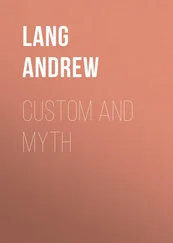Andrew Lang - A Monk of Fife
Здесь есть возможность читать онлайн «Andrew Lang - A Monk of Fife» — ознакомительный отрывок электронной книги совершенно бесплатно, а после прочтения отрывка купить полную версию. В некоторых случаях можно слушать аудио, скачать через торрент в формате fb2 и присутствует краткое содержание. Жанр: foreign_antique, foreign_prose, на английском языке. Описание произведения, (предисловие) а так же отзывы посетителей доступны на портале библиотеки ЛибКат.
- Название:A Monk of Fife
- Автор:
- Жанр:
- Год:неизвестен
- ISBN:нет данных
- Рейтинг книги:3 / 5. Голосов: 1
-
Избранное:Добавить в избранное
- Отзывы:
-
Ваша оценка:
- 60
- 1
- 2
- 3
- 4
- 5
A Monk of Fife: краткое содержание, описание и аннотация
Предлагаем к чтению аннотацию, описание, краткое содержание или предисловие (зависит от того, что написал сам автор книги «A Monk of Fife»). Если вы не нашли необходимую информацию о книге — напишите в комментариях, мы постараемся отыскать её.
A Monk of Fife — читать онлайн ознакомительный отрывок
Ниже представлен текст книги, разбитый по страницам. Система сохранения места последней прочитанной страницы, позволяет с удобством читать онлайн бесплатно книгу «A Monk of Fife», без необходимости каждый раз заново искать на чём Вы остановились. Поставьте закладку, и сможете в любой момент перейти на страницу, на которой закончили чтение.
Интервал:
Закладка:
“Well done, my son,” he said, “and now we are comrades. My life was not over safe on yonder side, seeing that the ‘manants’ hate me, and respect not my hood, and two are better company than one, where we are going.”
This encounter was the beginning of many evils, and often now the picture shines upon my eyes, and I see the grey water, and hear the cold wind whistle in the dry reeds of the river-bank whereon we sat.
The man was my master, Heaven help me! as surely as Sathanas was his. And though, at last, I slipped his clutches, as you shall hear (more readily than, I trow, he will scape his lord in the end, for he still lives), yet it was an ill day that we met – an ill day for me and for France. Howbeit we jogged on, he merrily enough singing a sculdudery song, I something surly, under a grey February sky, with a keen wind searching out the threadbare places in our raiment. My comrade, as he called himself, told me what passages he chose in the history of his life: how he came to be frocked (but ‘cucullus non facit monachum’), and how, in the troubles of these times, he had discovered in himself a great aptitude for the gunner’s trade, of which he boasted not a little. He had been in one and another of these armed companies that took service with either side, for hire, being better warriors and more skilled than the noblesse, but a curse to France: for, in peace or war, friend or foe, they plundered all, and held all to ransom. With Rodrigo de Villandradas, that blood-hound of Spain, he had been high in favour, but when Rodrigo went to harry south and east, he had tarried at Ruffec, with another thief of that nation, Alfonse Rodigo. All his talk, as we went, was of slaying men in fight; whom he slew he cared not much, but chiefly he hated the English and them of Burgundy. To him, war was what hunting and shooting game is to others; a cruel and bloody pastime, when Christians are the quarry!
“John the Lorrainer, and I, there are no others to be named with us at the culverin,” he would brag. “We two against an army, give us good cover, and powder and leaden balls enough. Hey! Master John and I must shoot a match yet, against English targets, and of them there are plenty under Orleans. But if I make not the better speed, the town will have fallen, or yielded, rescue or no rescue, and of rescue there is no hope at all. The devil fights for the English, who will soon be swarming over the Loire, and that King of Bourges of ours will have to flee, and gnaw horse’s fodder, oats and barley, with your friends in Scotland.”
This was one of the many ungenerous taunts which the French made often against us Scots, that have been their ancient and leal brethren in arms since the days of King Achaius and Charlemagne.
“The Dauphin,” he went on, “for King he is none, and crowned he will never be, should be in Orleans, leading his men; and lo! he is tied to the belt of fat La Trémouille, and is dancing of ballets at Chinon – a murrain on him, and on them that make his music!” Then he fell to cursing his King, a thing terrible to hear, and so to asking me questions about myself. I told him that I had fled my own country for a man-slaying, hoping, may Heaven forgive me! to make him think the higher of me for the deed.
“So we all begin,” said he; “a shrewd blow, or a fair wench; a death, or a birth unlawful, ’tis all one forth we are driven to the world and the wars. Yet you have started well, – well enough, and better than I gave your girl’s face credit for. Bar steel and rope, you may carry some French gold back to stinking Scotland yet.”
He gave me so much credit as this for a deed that deserved none, but rather called for rebuke from him, who, however unworthy, was in religion, and wore the garb of the Blessed Francis. But very far from fortifying me in virtuous courses, as was his bounden duty, there was no wickedness that he did not try to teach me, till partly I hated him, and partly, I fear, I admired one so skilled in evil. The truth is, as I said, that this man, for that time, was my master. He was learned in all the arts by which poor and wandering folk can keep their bellies full wandering by the way. With women, ugly and terrible of aspect as he was, he had a great power: a pious saying for the old; a way with the young which has ever been a mystery to me, unless, as some of the learned think, all women are naturally lovers of wickedness, if strength and courage go with it. What by wheedling, what by bullying, what by tales of pilgrimages to holy shrines (he was coming from Jerusalem by way of Rome, so he told all we met), he ever won a welcome.
Other more devilish cantrips he played, one of them at the peasant’s house where we rested on the first night of our common travel. The Lenten supper which they gave us, with no little kindness, was ended, and we were sitting in the firelight, Brother Thomas discoursing largely of his pilgrimages, and of his favour among the high clergy. Thus, at I know not what convent of the Clarisses, 5 5 Sisters in the rule of St. Francis.
in Italy, the holy Sisters had pressed on him a relic of Monsieur St. Aignan, the patron of the good town of Orleans. To see this relic, the farmer, his wife, and his sons and daughters crowded eagerly; it was but a little blackened finger bone, yet they were fain to touch it, as is the custom. But this he would not yet allow.
“Perchance some of you,” he said, “are already corrupt, not knowing it, with the poisonous breath of that damnable Hussite heresy, which is blowing from the east like wind of the pestilence, and ye may have doubts concerning the verity of this most holy and miraculous relic?”
They all crossed themselves, protesting that no such wicked whisper of Sathanas had ever come into their minds, nor had they so much as heard of Huss and his blasphemies.
“Nay,” said Brother Thomas, “I could scarcely blame you if it were partly as I said. For in this latter time of the world, when I have myself met Jews flocking to Babylon expecting the birth of Antichrist, there be many false brethren, who carry about feigned relics, to deceive the simple. We should believe no man, if he be, as I am, a stranger, unless he shows us a sign, such as now I will show you. Give me, of your grace, a kerchief, or a napkin.” The goodwife gave him a clean white napkin from her aumbry, and he tore it up before their eyes, she not daring to stay his hand.
“Now note this holy relic and its wonderful power,” he said, holding the blackened bone high in his left hand, and all our eyes were fixed on it. “Now mark,” he said again, passing it over the napkin; and lo! there was a clean white napkin in his hands, and of the torn shreds not a trace!
We were still gaping, and crossing ourselves with blessings on this happy day and our unworthy eyes that beheld a miracle, when he did a thing yet more marvellous, if that might be, which I scarce expect any man will believe. Going to the table, and catching up a glass vessel on which the goodwife set great store, he threw it against the wall, and we all plainly heard it shiver into tinkling pieces. Then, crossing the room into the corner, that was dusky enough, he faced us, again holding the blessed relic, whereon we stared, in holy fear. Then he rose, and in his hand was the goodwife’s glass vessel, without crack or flaw! 6 6 These tricks of sleight-of-hand are attributed by Jean Nider, in his “Formicarium,” to the false Jeanne d’Arc. – A. L.
“Such,” he said, “are the properties of this miraculous relic; there is nothing broken but it will mend, ay, a broken limb, as I can prove on my own sinful body,” – thrusting out his great brown leg, whereon, assuredly, were signs of a fracture; “ay, a broken leg, or, my dear daughters, a broken heart.” At this, of course, they were all eager to touch the blessed relic with their poor rings of base metal, such as they wear who are not rich. Nay, but first, he said, they must give their mites for a convent of the Clarisses, that was building at Castres, by the care of the holy Colette, whom he might call his patroness, unworthy as he was.
Читать дальшеИнтервал:
Закладка:
Похожие книги на «A Monk of Fife»
Представляем Вашему вниманию похожие книги на «A Monk of Fife» списком для выбора. Мы отобрали схожую по названию и смыслу литературу в надежде предоставить читателям больше вариантов отыскать новые, интересные, ещё непрочитанные произведения.
Обсуждение, отзывы о книге «A Monk of Fife» и просто собственные мнения читателей. Оставьте ваши комментарии, напишите, что Вы думаете о произведении, его смысле или главных героях. Укажите что конкретно понравилось, а что нет, и почему Вы так считаете.












